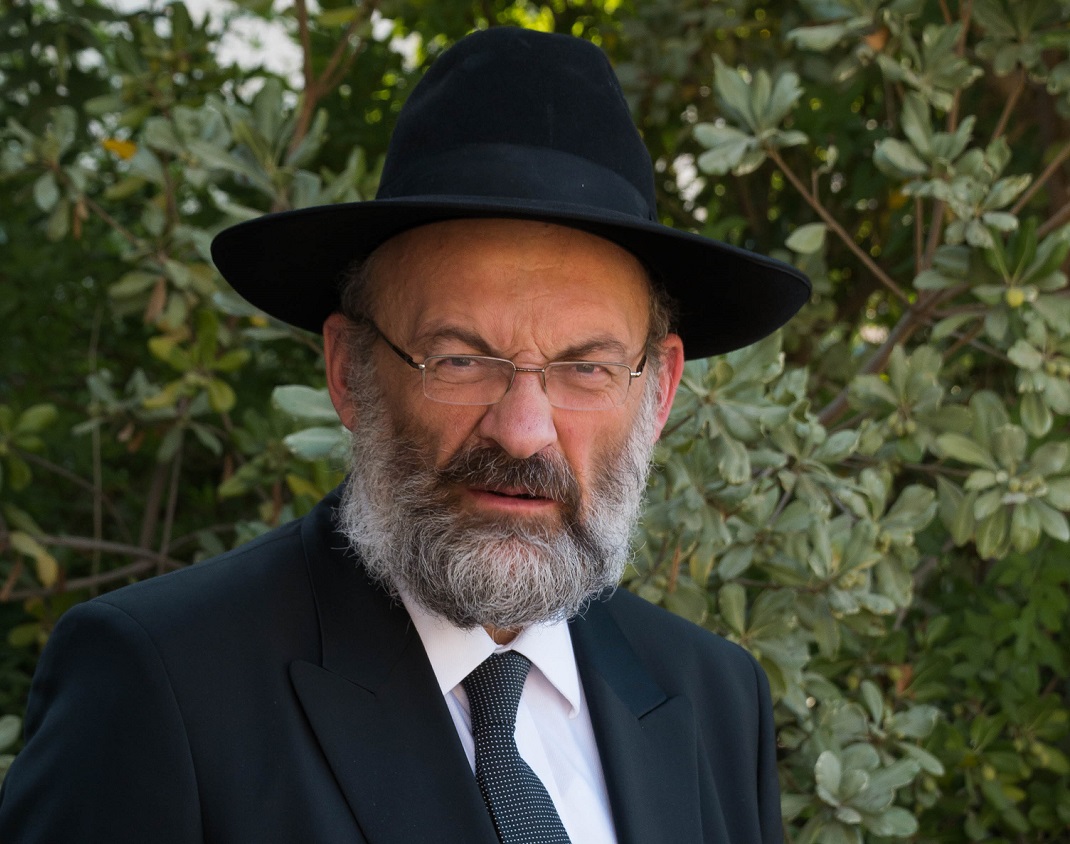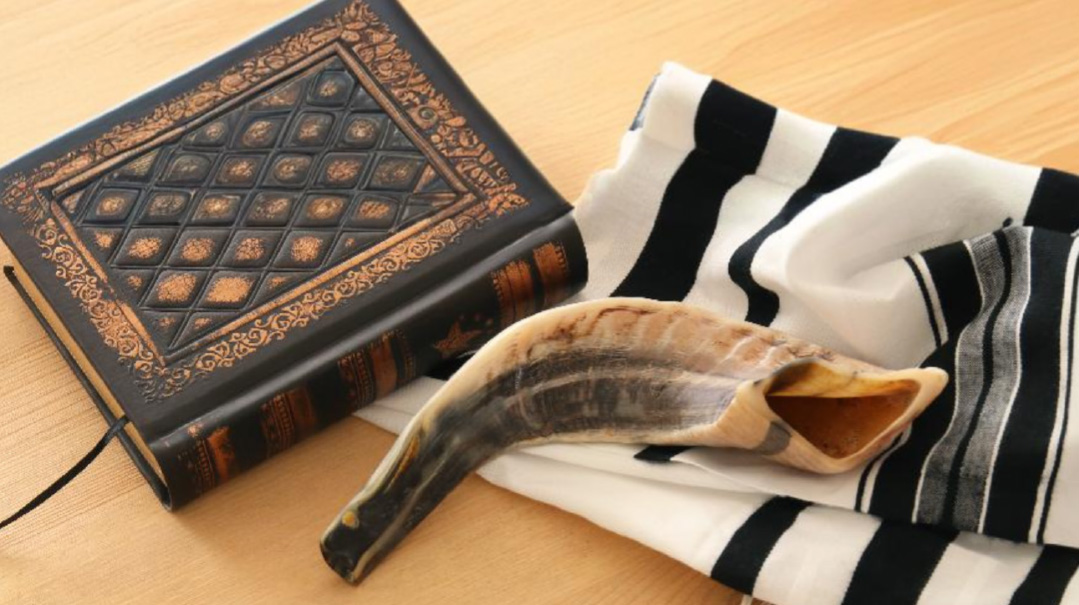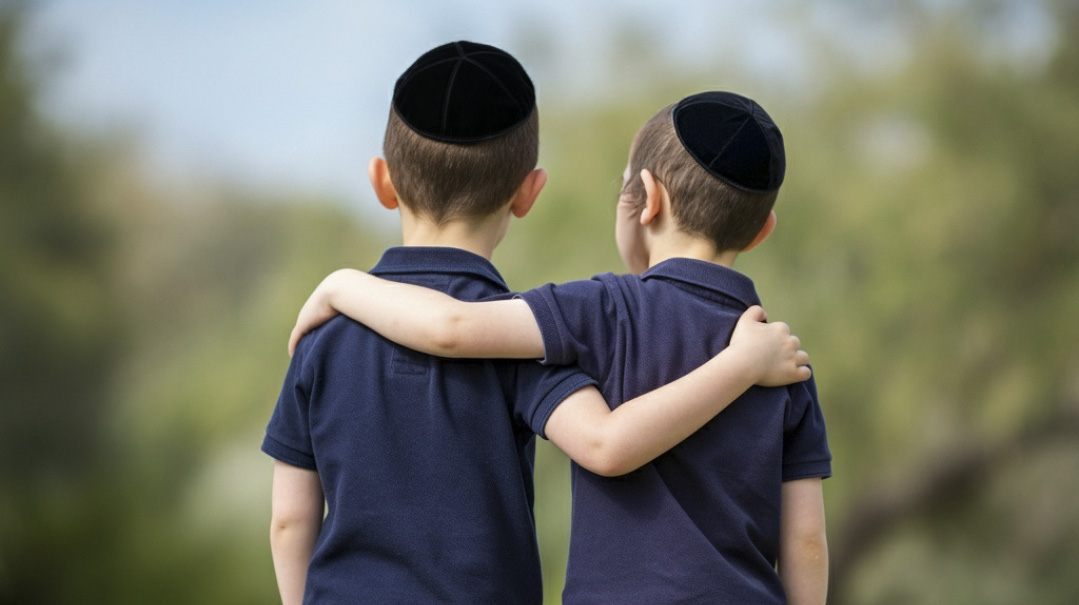Entering Hashem’s World

Entering Hashem’s world isn’t just a better way to daven; it’s a better way to live

When we ushered in the year 5784, none of us dreamed that our hopes for a sweet new year would be shattered only three weeks later. Since the horrors of Shemini Atzeres, this year has been fraught with tzaros that stand out in their intensity and frequency. As we approach Rosh Hashanah once again, we can all see that there’s something we need to improve.
Not all suffering is due to a subpar “performance” on Rosh Hashanah. Hashem has myriad considerations when He decides what punishments a person will receive in the coming year; our spiritual state on Rosh Hashanah is only one of them. However, our avodah on Rosh Hashanah does determine how those decrees are meted out — whether they will take a gentle form or a harsh one.
What we do on Rosh Hashanah determines the tzurah, the form Hashem’s decrees will take. For example, if a teacher needs to discipline his student, he has various ways to do that. He could send him to the principal’s office or make him miss recess. He could temper discipline with affirmation by giving the child an important job, but make him do it without any help. Or if truly necessary, he could bellow at the child in a way he will never forget.
The events of this past year were executed in an exceptionally strict way; the tzurah was very harsh. This tells us that the tzurah of our last Rosh Hashanah — the way we approached our avodah — was problematic. The tzurah of Rosh Hashanah doesn’t pertain to any particular action, but rather to the underlying essence of our whole avodah. Hopefully, we performed the right actions last Rosh Hashanah. We davened, heard the shofar, and were meticulous in our middos and halachic observance.
But what was the bottom line? What were our actions all about — us or Hashem? Did we view Rosh Hashanah as a chance to get what we want, or to realize Hashem’s plans for us and the world?
The essence of our avodah on Rosh Hashanah is very simple: We are in Hashem’s world. Rosh Hashanah is devoted to malchus Shamayim, Hashem’s sovereignty over all of Creation. In our tefillos, we don’t speak about our needs or even teshuvah, but rather about Hashem’s malchus, and how we long to see His malchus manifest in the world.
The whole year round, we view the world through our own eyes. The world is our (kosher) oyster, meant to serve us and fulfill us. But on Rosh Hashanah, we should experience the entire world, including ourselves, as being Hashem’s. The purpose of all existence is to proclaim Hashem’s glory.
After World War II, Rav Shlomo Wolbe visited a girl’s DP camp for Rosh Hashanah. He davened alone, and blew the shofar for the girls who were well enough to hear it. The circumstances were grim. Disease was rife, and he met several girls on the first day of Yom Tov who had passed away by the second. We would describe it as the worst Rosh Hashanah imaginable.
Yet for the rest of his life, Rav Wolbe longed to relive that experience. He explained that when he left the camp after Rosh Hashanah, he discovered a different world: the world of the Borei Olam. Everywhere he turned, he perceived with perfect clarity that it was Hashem’s world. That’s the essence of Rosh Hashanah, to enter the world of the Borei Olam.
In truth, this is the essence of all our avodas Hashem. We don’t just serve Hashem from afar; through our mitzvos, we elevate ourselves and the world around us, and reveal that even this lowly world is Hashem’s realm. Twice a day, we recite the Shema and declare that Hashem is One — the one and only existence in the cosmos. He is the King of all Creation; everything and everyone are all part of His world.
Every mitzvah brings us into Hashem’s world. But when it comes to tefillah, entering Hashem’s world isn’t just the inner essence — it’s the very definition. We don’t make a long-distance call to Hashem with our list of requests; we enter His world and speak to Him in His palace. That’s why the main avodah of Rosh Hashanah is davening. Through davening we enter Hashem’s world and take part in the malchus Shamayim that’s revealed on this day.
Entering Hashem’s world doesn’t mean detaching ourselves from physical existence or floating up to imaginary spiritual heights. It means seeing the world through Hashem’s eyes, so to speak: how every detail in Creation expresses Hashem’s will or advances His plans. In this light, we daven for our needs, because their fulfillment is a vehicle to actualize Hashem’s benevolent will, or to bring the world closer to its purpose.
When we daven, we view the world through Hashem’s eyes. We should realize that every time we bentsh. In Bircas Hamazon, the first brachah is self-explanatory: we thank Hashem for the food we ate. But then we begin to talk about all sorts of topics: Eretz Yisrael, Yetzias Mitzrayim, bris milah, receiving the Torah, Yerushalayim, and the Beis Hamikdash. What does all that have to do with the bread we just ate?
The answer is that in Hashem’s world, the food a Jew eats has a lot more significance than his individual satiation. A Jew’s food fuels his avodah, his contribution to Klal Yisrael’s national avodah, which is headquartered is Eretz Yisrael, the land of kedushah. Through our avodah, our physical bodies are imbued with kedushah, as signified by the bris milah.
We continue the mission of the Jewish People that began in Yetzias Mitzrayim and Matan Torah, and that will reach its pinnacle when Yerushalayim’s spiritual splendor and the avodah of the Beis Hamikdash are restored. In Hashem’s terms, a slice of bread means much more than meets the eye.
Our needs are Hashem’s business. The depth behind this is that Hashem gives us the right to tell Him how to run His world, as it were. Many rulers permit their subjects to beg for their needs, but what right do they have to tell the king how to run his business? It’s truly astounding: Through tefillah, Hashem gives us a say in how He fulfills His will and plans!
This is not just hashkafah; it’s a very practical avodah. One way to work on this is to think about the topics we’re about to daven for, the way Hashem views them. Preparation is the only way to enter Hashem’s world and think in His terms. Otherwise, we’ll inevitably talk about our needs the way we perceive them: I need money; so-and-so needs a refuah. Before I begin davening, I try to mentally rehearse the topics of all the brachos in Shemoneh Esreh. Then, before I begin each brachah, I remind myself what I’m about to talk to Hashem about and what it means in His world.
Entering Hashem’s world isn’t just a better way to daven; it’s a better way to live. The drive to do teshuvah is built on a longing to be shav, to return, to Hashem and His world. Teshuvah is not merely an act of self-improvement; it’s the realization of another world, the world where Hashem’s sovereignty is absolute. That’s why Rosh Hashanah is the beginning of Aseres Yemei Teshuvah, even though we don’t confess our sins or ask for forgiveness. On this day, Hashem’s malchus is revealed in all its glory, and we realize: We have not been living in His world, but we want to come back to it.
This Rosh Hashanah, instead of pulling out our wish list for the coming year, let’s take a deep breath and step into the world of Hashem. Let’s rejoice that we have the privilege to do so, and strengthen our desire to live in His world all year round. That’s the proper tzurah of tefillah, and the beginning of teshuvah. If we do that, we have good reason to hope that the tzurah of the coming year will be a sweeter one.
—Prepared for print by Rabbi Eran Feintuch
(Originally featured in Mishpacha, Issue 1031)
Oops! We could not locate your form.







